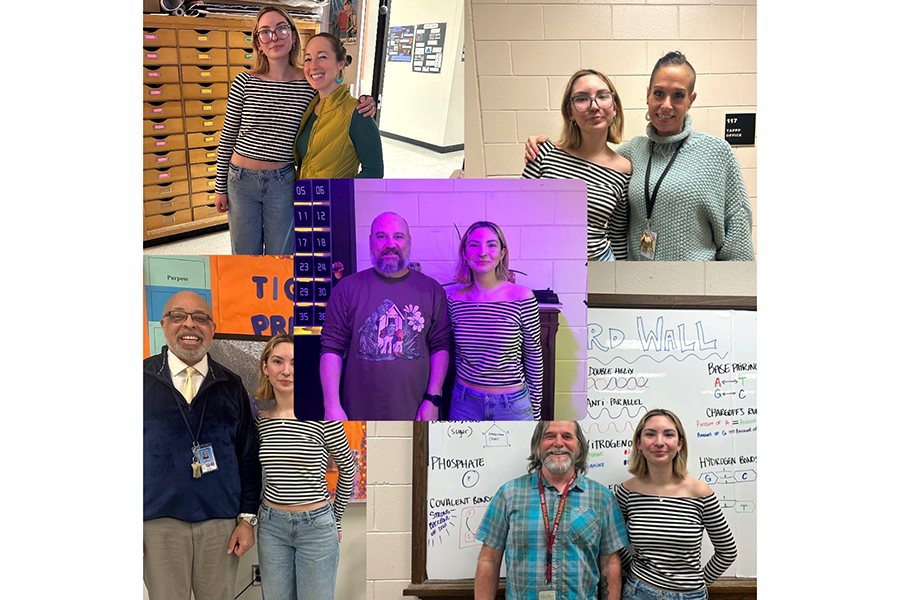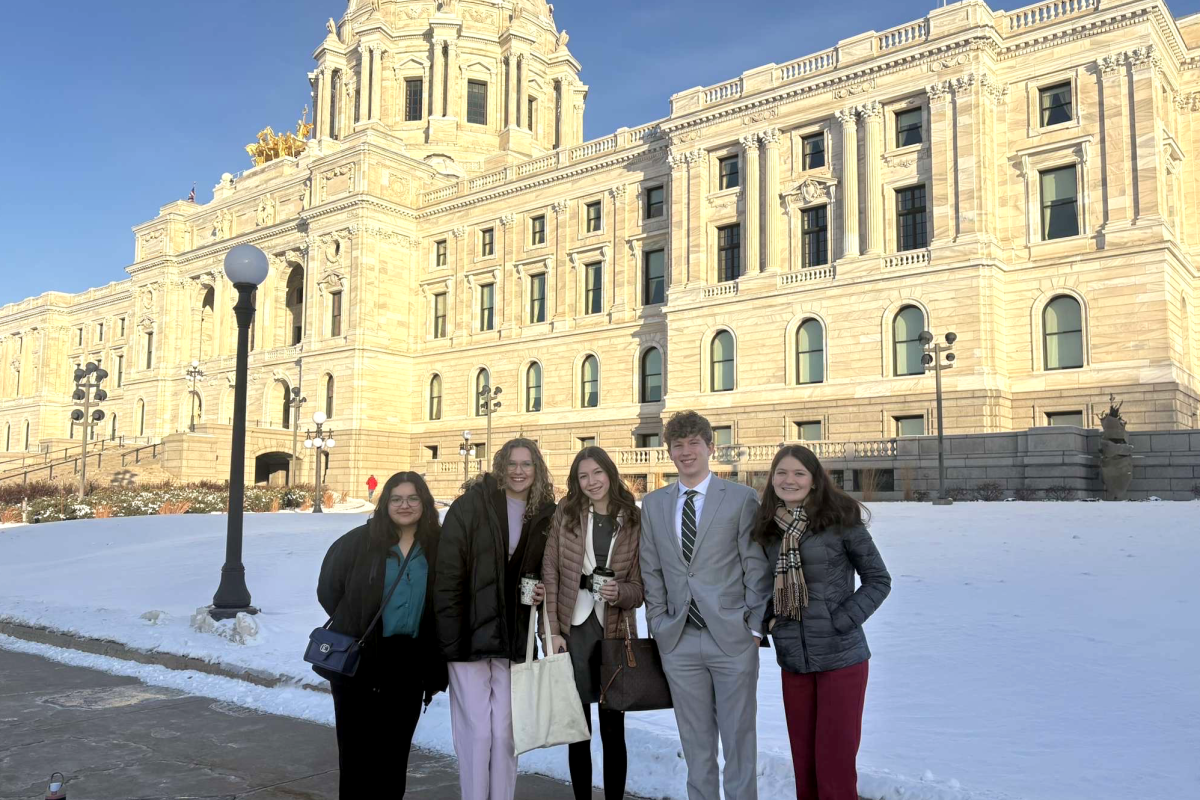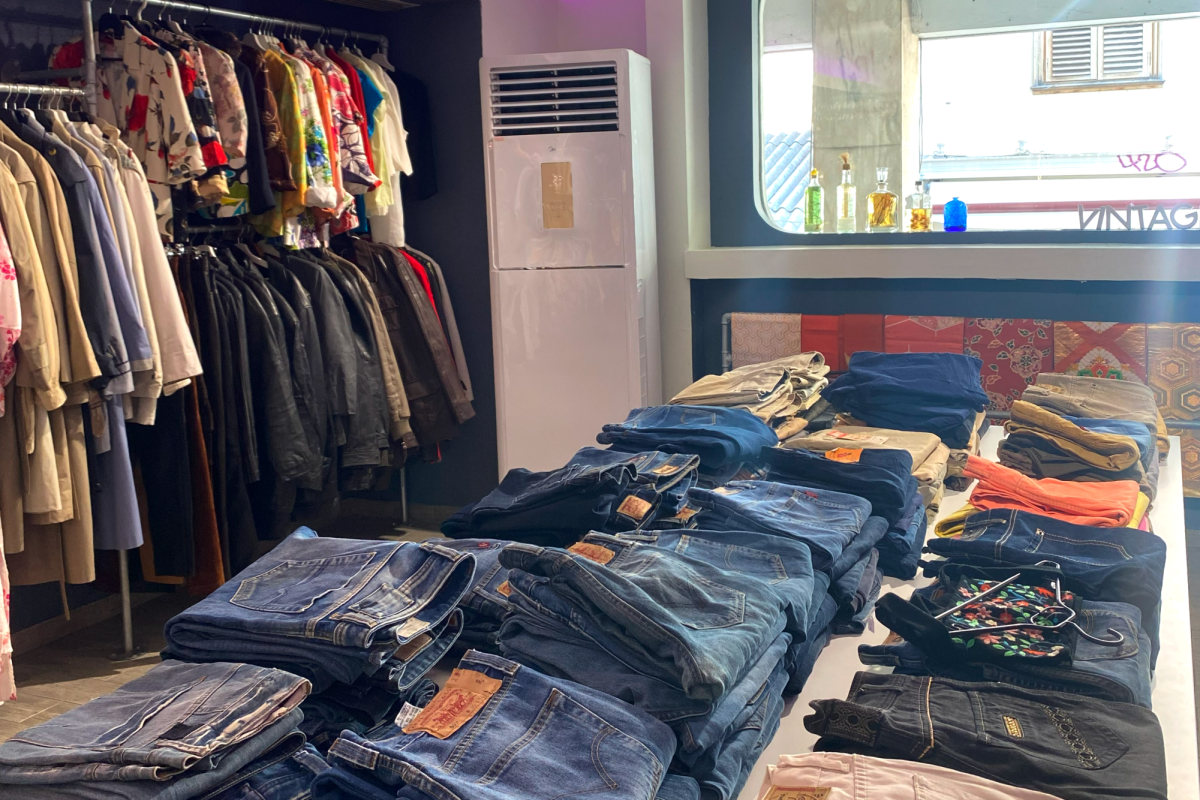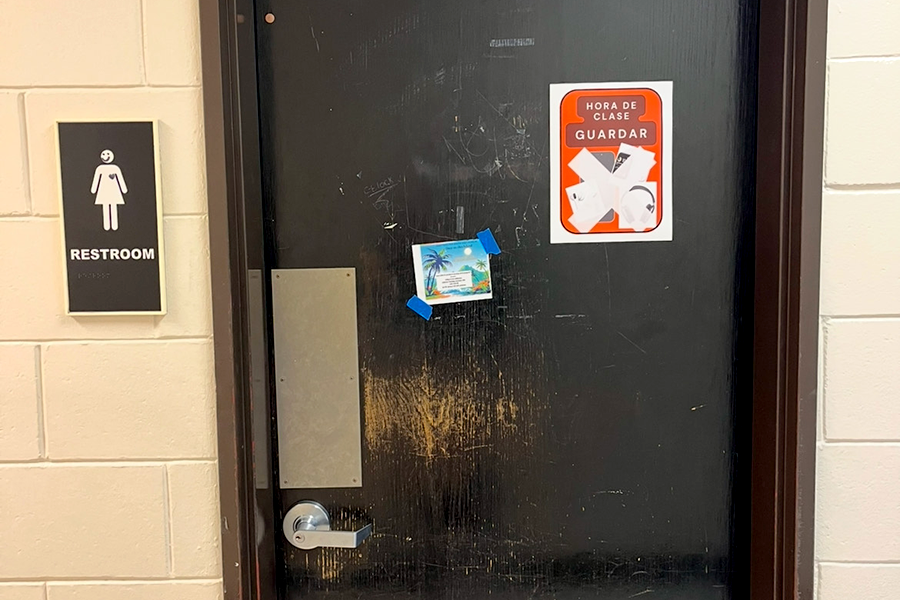This story was featured in the 2011 Spring Newsmagazine
Senior Cooper Johnson spent the first month of the 2010-11 school year in rehab. His friends told people he was gone for a rap deal in Los Angeles, but when Johnson returned he told the truth. He had been at Hazelden Treatment Center, recovering from a life controlling addiction to marijuana and prescription drugs.
Many pharmaceutical drugs are addictive and dangerous if abused, and Johnson isn’t the only student experiencing their clutch. According to the National Drug Intelligence Center (NDIC) pharmaceutical drugs are the second most abused drug among teens, following marijuana.
“Drugs were my everyday life,”’ said Johnson, “they were the reason I got up, they were the reason I didn’t get up. Every second of the day was how to get more.” Before receiving treatment, Johnson, who started doing drugs the summer before sixth grade, was a user of marijuana, Vicodin, Oxycontin, and “any downer.” He was also an occasional drinker, and is adamant about his belief that alcohol is just as much of a drug as any others.
“A lot of people say pot’s not addictive, but pot led me directly to Oxycontin and Vicodin,” said Johnson, “I used pot every night to fall asleep and continuously had to use more and more, until eventually I smoked constantly and it wasn’t affecting me.” Johnson felt the need to “find a new solution”.
Oxycontin and Vicodin are both narcotic pain relievers and are commonly used by people who have recently undergone surgeries. According to the National Institute of Drug Abuse (NIDA), “prescription drugs act directly or indirectly on the same brain systems affected by illicit drugs; thus their abuse carries substantial addiction liability.”
“I went to school either high or withdrawing (the majority) of last year,” said Johnson. One in every twelve high school seniors have tried Vicodin without a medical need, and one in every twenty have used Oxycontin, also according to NIDA. “Its like watching someone you love kill themselves slowly,” said Johnson of his addiction, “except its you and you can’t stop.”
Johnson said he would go on two to three day binges before taking the same amount of time off from drugs.
Opiates, which are prescription drugs meant to deal with pain, are very similar to herion in both their effects and addiction habits. Oxycontin has been called the “poor man’s heroin” and can be injected into the blood stream like heroin. According to NIDA, this can increase the rates of getting HIV. Opiates can also cause respiratory depression, especially when mixed with alcohol. The withdrawal period after using opiates can also be extremely dangerous, even capable of causing seizures and death.
After starting his recovery process, Johnson has noticed several differences in the quality of his health. “Well, I’m not coughing up blood anymore.” he said. Johnson has also improved his ability to sleep, which he calls a “blessing.”
Codeine, Adderall, prescription pain killers, marijuana, ‘shrooms, and ecstasy are all drugs freshman Nick (not his real name) has used for a recreational purpose. Nick uses drugs nearly every weekend. “Adderall kind of makes you feel slower and more focused,” said Nick, “while pain killers, those make you feel a buzz, like when you’re drunk.”
According to the NDIC, one ten milligram Oxycontin pill can cost up to ten dollars when bought illegally. “I come from a somewhat well off family, and I had allowance saved up,” said Johnson of how he was able to afford his drugs. He also admits to having stolen money from his family to buy drugs.
For Mike, (not his real name) drugs not only affect him financially but also in the way he views life. “They change the way you look at [things],” said Mike “it introduces you to a whole different aspect of society, and you sympathize with them.”
For Johnson, drugs changed the way he looked at himself. “You stop loving yourself [when you do drugs],” said Johnson, “I began hating myself.”
“There was no future [with drugs],” he continued, “all I could hope for was to somehow manage to use drugs the rest of my life, but secretly I was hoping to just not wake up.” After receiving treatment Johnson has reconnected with his dream of entering the film industry after college.
“Every teen has their moments of negativity,’”said Johnson “but for the most part, I now see the world as livable. I’m excited to do something with my life.”
In Johnson’s circle of friends, drug use was not a shocking sight. “[Johnson] was really focused on getting drugs,” said an anonymous friend of Johnson’s, “we always ended up doing drugs when we hung out.” Though drug use was something Johnson had in common with many of his friends, it also created strain on his relationships. “I cut off all my healthy relationships, because naturally they wanted to help me,” explained Johnson, “I became extremely defensive and only hung around with people who wanted to do what I wanted to do, which was drugs.”
“At times [our friendship] became rough,” said Johnson’s friend, junior Martin Huber, “he was not in a good mood whenever he was sober. When we weren’t sober, our friendship was fine.” Eventually people began to notice how dependent Johnson was on drugs, and they began to comment.
“It became apparent I didn’t do drugs like they did drugs,” said Johnson, “I didn’t make it easy for them to talk to me, I was going to do what I wanted to do.”
His friend, Huber has a similar experience of these conversations. “I told him he needed to stop a couple times, but it never happened.” he explained, “he’d just say ‘yeah’ and play along like he was about to but then it would never come up again.”
In 2011 however, Johnson made the decision with his family to seek help for his addiction at Hazelden Addiction Center in Plymouth, Minnesota. “[I had] a moment of realization of what I had done to myself, my family, and the people around me,” said Johnson. His younger sister had an especially large impact on his decision. “[She] didn’t know who I was anymore,” he said.
Johnson stayed at Hazelden in residential treatment for thirty days, and is still a part of an aftercare program. Johnson was sober for four months before relapsing on marijuana.
“I think the main reason [for my relapse] was that I hadn’t been sober for four months since I turned twelve,” he said, “every single sober anniversary is a lot of pressure. It makes you think a lot about the finality of the program.” Johnson also admits to having stopped “working the program the way I should have.”
“[After my relapse] I sat down one on one with my counselor, they allowed me to be 100% honest again, and we talked about why it happened,” continued Johnson, “we came to the conclusion that I was over confident with my recovery.”
Johnson has now been clean for over a month.
“I have friends who are still completely in that lifestyle,” said Johnson. He explained that he worries about his friends’ habits now that he understands the severity of addiction. “It’s difficult because ideally I wouldn’t have any friends who did drugs,” he continues “they respect what I’m trying to do, but I’ve definitely made more sober friends.”






